Reciprocal Conversation Skills and Your Child’s Development

- Reciprocal conversation is how two people communicate with each other and helps people form social connections.
- Children who struggle with reciprocal conversation are unable to express their needs and understand the needs of others.
- You can help your child improve their reciprocal conversation skills by practicing with them and being patient.
- Seek expert help if your child has behavior problems or cannot get their needs met at school or childcare.
Communicating well with others is an essential life skill. Children who struggle with reciprocal communication may suffer socially and academically. They may find it difficult to maintain employment later in life.
Luckily, there are things parents can do to help their children improve reciprocal conversation skills.
Consult your child’s pediatrician if you notice problems with reciprocal conversation skills and your child’s development.
What Is Reciprocal Conversation?
Reciprocal conversation is the way that two or more people communicate. It requires paying attention to what someone says and forming a response. Small talk is a good example of reciprocal conversation.
It is important for children to participate in back and forth conversation. Listening to a story or hearing a teacher talk about something is a one-sided interaction. Kids need to actively participate in conversations with parents and teachers.
Skills needed for reciprocal conversation
Reciprocal conversation involves more than just using words or listening to stories. Basic skills needed for this type of communication include vocabulary, understanding language, and social language.
Vocabulary is simply knowing a word and its meaning. A child with a large vocabulary can know a lot of words and still struggle with conversation. Babies starting to learn single words like “bottle” or “blanket” are in the beginning stages of communication.
Understanding language is a little more complex than knowing vocabulary words. Understanding the meaning of words put together is the next step towards good communication.
Body language and tone are included in understanding language.
Social language is the last big piece of reciprocal conversation. After a child learns some vocabulary and understands language, they can engage with others through reciprocal communication.
More advanced conversation skills can develop later. These include;
- Listening with interest
- Understanding subtle body language
- Making appropriate eye contact
- Taking turns talking
- Asking reciprocal questions
- Answering appropriately
- Discussing controversial topics
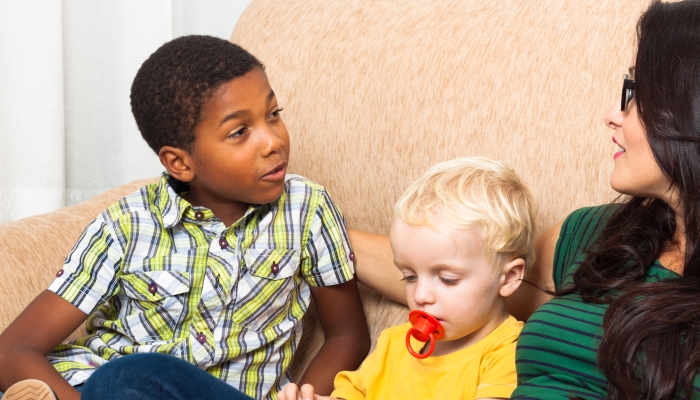
Why Reciprocal Conversation Skills Matter for Kids
Reciprocal conversation is important for language and social development. Kids who engage in reciprocal conversation tend to have a larger vocabulary. They also score higher on standardized tests and connect with other students more easily.
Skills built through reciprocal conversation
Reciprocal conversations help children learn to:
- Communicate a different point of view
- Start an interaction
- Know when to take conversational turns
- Use verbal problem solving
- Send an effective message
- Use appropriate body language
- Listen to someone else’s ideas
Building these skills helps children have more positive interactions with their peers. It also helps them communicate their needs to their teachers, babysitters, and parents.
Better communications skills lead to better behavior in children. Children who struggle with language may get frustrated when they are not understood. Children who have a hard time listening may not be able to focus in school.
Causes of Reciprocal Conversation Issues in Childhood
All children develop at a different pace. Some children have good social language skills as toddlers. Others have to practice conversation skills into adulthood.
Besides normal variations in development, there are many reasons your child may have conversation issues.
Physical disability
When my brother was a toddler, he fell behind on his speech milestones. He was tested for developmental delays and signed up for speech therapy.
A few weeks later, his therapist discovered that he had a hearing problem. He could hear well enough to pass the basic hearing test, but words were muffled to him. He got some tubes in his ears and caught up on his speech milestones a few months later.
Children with severe hearing problems may need to learn sign language as a form of communication.
Other physical problems that may lead to speech delay include oral-motor problems or cleft palate. These are problems with the mouth that make it difficult for children to form a word.
Surgery, physical therapy, or sign language might help your child overcome these challenges.
Developmental disability
According to the CDC, about 15% of children under the age of 18 have some kind of developmental disability. That number has been steadily climbing for the past several years. These can range from mild to severe.
Most developmental disabilities have at least some impact on communication ability.
Developmental disabilities include;
- Autism spectrum disorder
- Down Syndrome
- Cerebral palsy
- Intellectual disability
- Attention Deficit Hyperactivity Disorder
- Learning Disabilities
These delays and disabilities can affect language, social skills, and vocabulary.
For example, a child with an intellectual disability may understand better than they can verbalize. They know what words and language mean, but have trouble expressing themselves.
A child with ADHD may have a large vocabulary, but struggle with paying attention to long conversations.
Trauma
Children who experience trauma often have reciprocal conversation issues. Neglect is the trauma most commonly responsible for communication issues.
Children who are neglected do not get the practice they need for development of speech and language skills.
Children who experience trauma may become withdrawn. These children have behavior problems and often struggle with peer interactions.
How to Tell if a Child Struggles With Reciprocal Conversation
Normal children’s conversations
Children’s conversations change dramatically as they grow up. A baby’s babbling will eventually become a preschooler’s conversation with a friend. This eventually leads to an adult’s conversation about a complex concept.
Communication development by age
Keep an eye on your child’s speech and language milestones. If their behaviors and interactions seem strange, tell your pediatrician.
Many communication skills can be learned or corrected with early intervention.
| 6 months | By 6 months, your child should vocalize back when talked to. They should start paying attention when you say “no”. When they hear a new sound, they should look to see where it came from. Infants should start to communicate using sounds like “ooh” and “ahh”. Your baby should be able to make eye contact and maintain it for several seconds. |
| 12 months | By 12 months old, your baby should respond to their own name. They should also respond to simple requests like, “come here”. Your 12 month old baby should have a vocabulary of four to six words, and try to imitate you when you speak. |
| 3 years | By three years old, your child should have a vocabulary of 300-500 words. They should start to talk about complex subjects like ideas and feelings. Strangers should be able to understand most of the words your child uses. |
| 6 years | Your six year old child should show interest in conversations. They can tell a story using their imagination. Six year olds should be able to understand time sequences. They should be able to tell you what happened first, second, and third. |
| 12 years | By 12 years old, your child should have a strong command of their language. They will probably make comments and join in on adult conversations. They will be able to discuss complex strategies and a variety of subjects. They can understand concepts like justice, cause and effect, and other abstract ideas. They may start to copy “cool” slang used by older students. Their social skills should allow them to ask reciprocal questions and participate in long conversations. 12 year old children should start paying attention to more subtle body language and changes in tone. They may start using sarcasm when they answer questions. |
Tips to Help Improve Your Child’s Conversation Skills
If your child is not meeting their communication milestones, they may just need more practice. Talk to your child as often as you can and allow them time to respond.
You can even practice conversation with newborn babies. They will not answer yet, but they can practice eye contact and start paying attention to sounds you make.
You can encourage back and forth conversation with infants and toddlers with small talk. Ask them reciprocal questions and wait for them to answer. Make sure you give them enough time to respond.
Be animated and excited while talking to your young children. This will keep them engaged. Talk to them about a subject they are interested in.
For older children, focus on the importance of manners and behavior. You can teach them how to have more positive interactions with others. Help them avoid making comments that are hurtful. Practice how to have a nice conversation with a stranger.
Be a good example. Your own behaviors should match the behavior you want your child to have. Children learn by watching. When you talk to a friend, model good listening skills. Use language you would want your child to use.
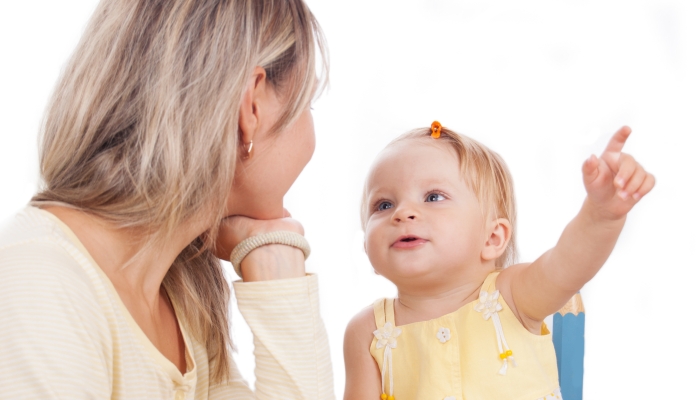
When to See an Expert
For children with mild reciprocal conversation issues, more practice might be sufficient. For more severe problems, expert help might be necessary.
One of the first things to look for in babies is how they interact with others. Babies later diagnosed with autism may not make eye contact or show interest in people.
Talk to your pediatrician if your child does not smile at you or make eye contact around three months old.
Infants around 12-18 months should start trying to communicate with people around them. Kids who show no response to their name being called or their parents voices may have communication problems.
Warning signs in older toddlers can be seen in how they play with toys and interact with peers. If your two year old does not interact with others at childcare or engage in pretend play, discuss this with your pediatrician.
By three years old, your child should be excited to hear you read a story with pictures. They should show interest in making friends and engage in short conversations.
How Can an Expert Help?
Many communication disorders are treatable and some are reversible. If you and your pediatrician are concerned about your child’s communication, you have several treatment options available.
First you may want to see an ear, nose, and throat doctor. This can help determine whether some kind of physical problem needs to be corrected.
Next, you can have your child seen by a speech therapist. Speech therapists can help your child improve both their language and social skills.
A speech therapist may use games or music to encourage reciprocal communication. The goals of a speech therapist will typically include:
- Help the child communicate their needs
- Teach the child to understand social cues
- Give strategies to get along with others
- Correct grammar and sound errors in speech
- Explain figurative speech
For some children, reciprocal communication will always be a challenge. Help your child by giving them opportunities to practice. Be patient and avoid making comments that are degrading or discouraging.
Remember that learning conversation skills is a lifelong process. Other parents, teachers, and peers can help you guide your child towards better communication skills.
FAQs
Can a non-verbal child also demonstrate reciprocal conversation?
Yes! There are many different ways to communicate. Using facial expressions, body language, and hand signals are all ways of communicating without words.
The only real requirement for reciprocal communication is that one person expresses a need or idea, and another person responds.
Some parents of non verbal children use things like hand clapping or pointing to communicate with their children.
For non verbal children, parents may need to look for more subtle signs to understand what their children need.
Just because a child is non-verbal does not mean you can’t talk to them. Talk to your child. Ask simple yes or no questions to keep them engaged. They may be able to use a picture board or chart to respond to your questions.
Is speech therapy covered by insurance?
Speech therapy is not always covered by insurance. Most insurance companies will cover speech therapy after illness or injury. They generally do not cover speech therapy needed because of a developmental delay.
If your insurance company covers speech therapy, make sure you understand referral requirements. You will also need to clarify how many appointments will be covered and keep track of those appointments.
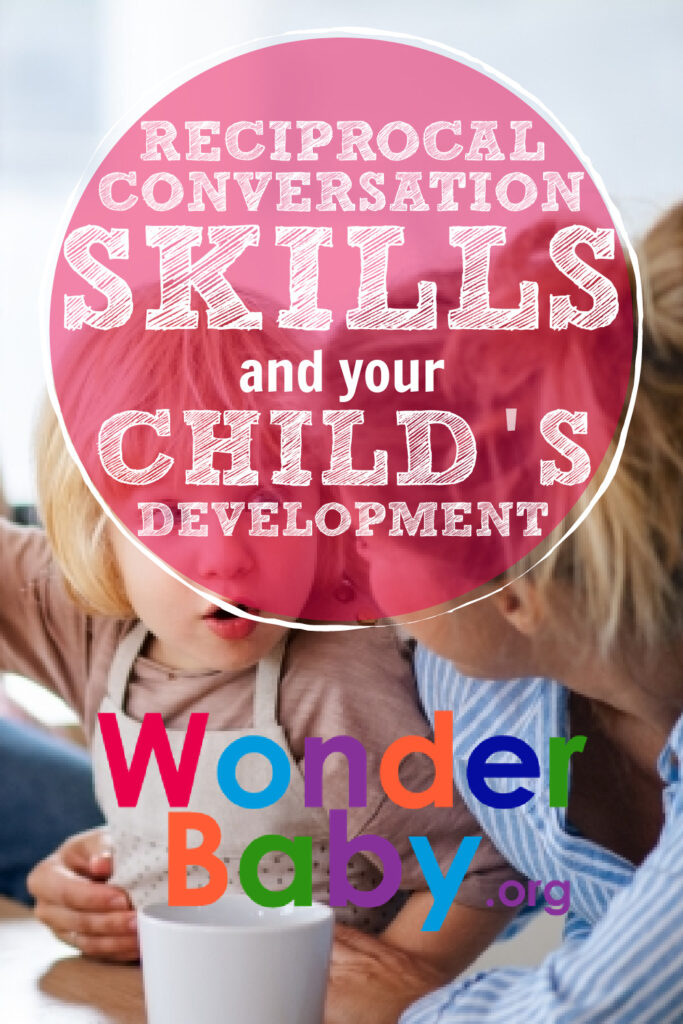
The information WonderBaby provides is not intended to be, and does not constitute, medical or other health advice or diagnosis and should not be used as such. Always consult with a qualified medical professional about your specific circumstances.
Related Posts
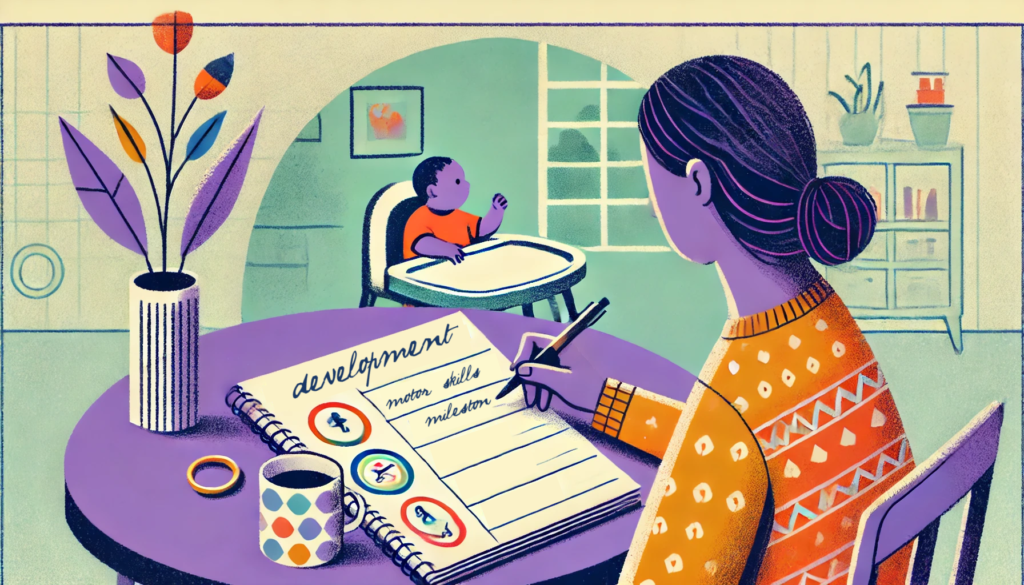
Development, Special Needs
How to Track Milestones for Developmentally Delayed Babies
Parents of developmentally delayed babies can explore practical tools and strategies to track milestones, celebrate progress, and support their child’s unique developmental journey.
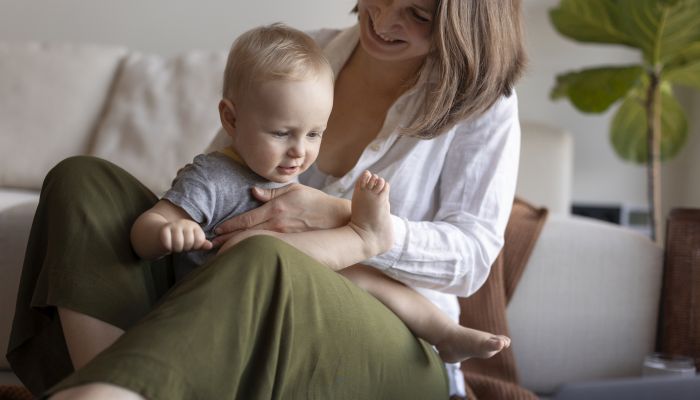
Fine and Gross Motor
5 Alternatives to Tummy Time for Babies with Motor Development Challenges
Does your baby struggle with tummy time due to motor development challenges? These alternatives to tummy time will offer the same benefits.
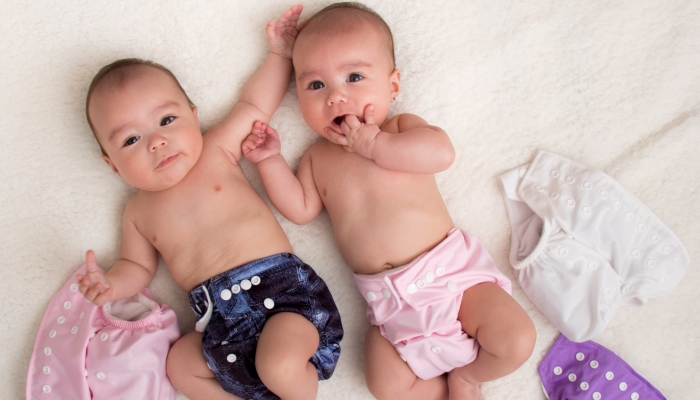
Development
Should Twins Share a Room?
Wondering if your twins should share a room? We’ll explore the pros and cons of room-sharing for twins right here before you make your decision.